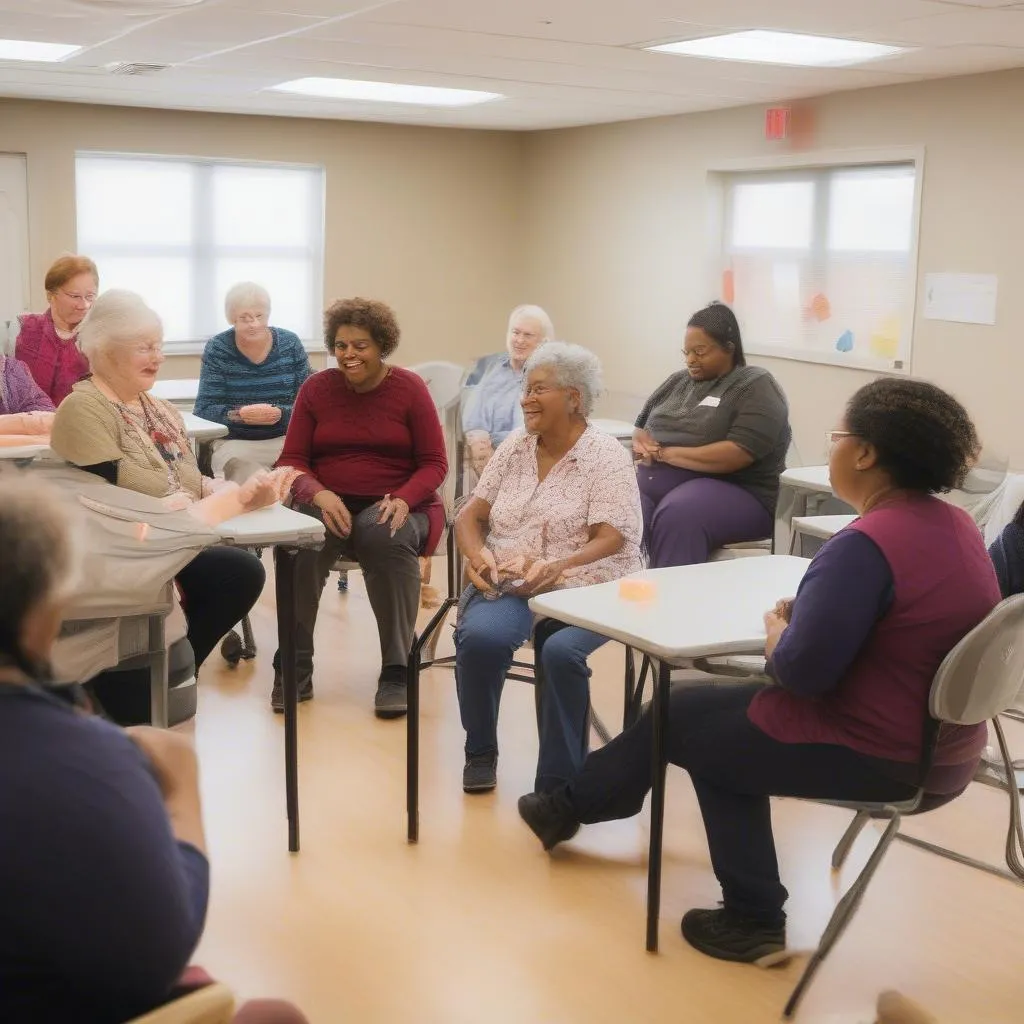Imagine this: Sarah, a single mother in Milwaukee, is feeling overwhelmed. Her son, Thomas, has autism and requires constant care. She loves him dearly but needs a break to recharge and be the best mom she can be. This is where respite care providers step in, offering a lifeline for families like Sarah’s.
If you’re a compassionate individual in Wisconsin wondering, “How can I become a respite care provider?” you’ve come to the right place. This guide will walk you through the process, resources, and rewards of this fulfilling career path.
What Does a Respite Care Provider Do?
Before diving into the “how,” let’s understand the “what.” Respite care providers offer temporary relief to family caregivers of children or adults with disabilities, illnesses, or aging-related needs. This could involve:
- Providing companionship and supervision: Engaging in activities, playing games, or simply offering a listening ear.
- Assisting with daily living activities: Bathing, dressing, toileting, and feeding.
- Administering medication: Following strict guidelines and ensuring accurate dosage.
- Transporting clients: Taking them to doctor’s appointments, therapy sessions, or social outings.
- Offering emotional support: Providing a safe space for caregivers to share their feelings and concerns.
Respite care allows family caregivers to attend to personal needs, work, run errands, or simply take a much-needed break, knowing their loved ones are in capable hands.
Steps to Becoming a Respite Care Provider in Wisconsin:
1. Meet the Basic Requirements:
- Age: Be at least 18 years old.
- Education: A high school diploma or equivalent is generally required, though some agencies may prefer candidates with some college education or healthcare experience.
- Background Check: Pass a criminal background check and a caregiver background check.
- Driver’s License: Possess a valid driver’s license and reliable transportation, especially if providing transportation services.
- CPR and First Aid Certification: Obtain certification in CPR and First Aid, often a prerequisite for employment.
2. Obtain Specialized Training and Certification (Optional but Recommended):
While not always mandatory, pursuing specialized training can enhance your skills and employability:
- Certified Nursing Assistant (CNA): Provides a solid foundation in basic caregiving skills.
- Home Health Aide (HHA): Equips you to provide personal care and support in a home setting.
- Personal Care Worker (PCW): Focuses on assisting with daily living activities and personal care.
- Respite Care Certification Programs: Some organizations offer specific training programs tailored to respite care.
Expert Insight: “Investing in relevant training not only enhances your competency but also demonstrates your commitment to providing quality care,” says Dr. Emily Carter, a geriatric care specialist and author of “The Respite Care Handbook.”
3. Choose Your Employment Pathway:
- Respite Care Agencies: Agencies connect providers with families seeking respite care. They often handle scheduling, payroll, and client matching.
- Home Health Agencies: Some home health agencies offer respite care services as part of their broader offerings.
- Independent Contractor: Operate as your own boss, setting your rates and choosing your clients. This option offers flexibility but requires self-marketing and administrative tasks.
4. Complete the Application Process:
- Submit applications: Apply to agencies or organizations offering respite care positions.
- Attend interviews: Prepare for interviews by highlighting your skills, experience, and passion for caregiving.
- Provide references: Furnish professional references who can vouch for your character and work ethic.
5. Secure Your License (If Applicable):
- Wisconsin does not currently require a separate license for respite care providers. However, if you are working for an agency, they may have specific licensing requirements or certifications they need you to obtain.
6. Embark on Your Respite Care Journey:
- Receive orientation and training: Once hired, you’ll likely undergo orientation and training specific to the agency or client’s needs.
- Provide compassionate care: Approach each client with empathy, respect, and a genuine desire to make a difference in their lives.
- Maintain professionalism: Adhere to ethical guidelines, maintain client confidentiality, and communicate effectively with families and supervisors.
FAQs about Becoming a Respite Care Provider in Wisconsin:
What are the average salary expectations for respite care providers in Wisconsin?
Salaries vary based on experience, location, and employment type. On average, respite care providers in Wisconsin earn between $12-$18 per hour.
Are there any resources for finding respite care training programs in Wisconsin?
Yes! The Wisconsin Department of Health Services, local community colleges, and organizations like the Alzheimer’s Association often offer relevant training programs.
Do I need to be licensed to provide respite care independently in Wisconsin?
While a separate license is not required for independent respite care providers in Wisconsin, obtaining certifications can bolster your credentials and attract clients.
 Respite Care in Wisconsin: Elderly Woman with Caregiver
Respite Care in Wisconsin: Elderly Woman with Caregiver
Beyond the “How-To”: The Rewards of Respite Care:
Becoming a respite care provider is more than just a job; it’s an opportunity to make a tangible difference in the lives of families facing challenging circumstances. You’ll experience the fulfillment of:
- Providing essential support: Offering families much-needed relief and enabling them to care for themselves.
- Building meaningful connections: Developing bonds with clients and their families based on trust and compassion.
- Enriching the lives of others: Bringing joy, companionship, and a sense of normalcy to those you serve.
- Gaining valuable experience: Developing skills and knowledge that can be applied to various healthcare settings.
 Respite Care Training: Classroom Setting in Wisconsin
Respite Care Training: Classroom Setting in Wisconsin
Ready to Begin Your Respite Care Journey in Wisconsin?
If you’re ready to embark on this rewarding path, start by researching local agencies, exploring training options, and connecting with experienced providers. Your compassion and dedication can make a world of difference in the lives of families throughout Wisconsin.
Need Help Navigating the World of Automotive Diagnostics? Contact us on Whatsapp at +84767531508. Our team of expert mechanics is available 24/7 to assist you with all your diagnostic tool needs.
Interested in Learning More About Automotive Technology? Check out our other informative articles on Tech Car USA!